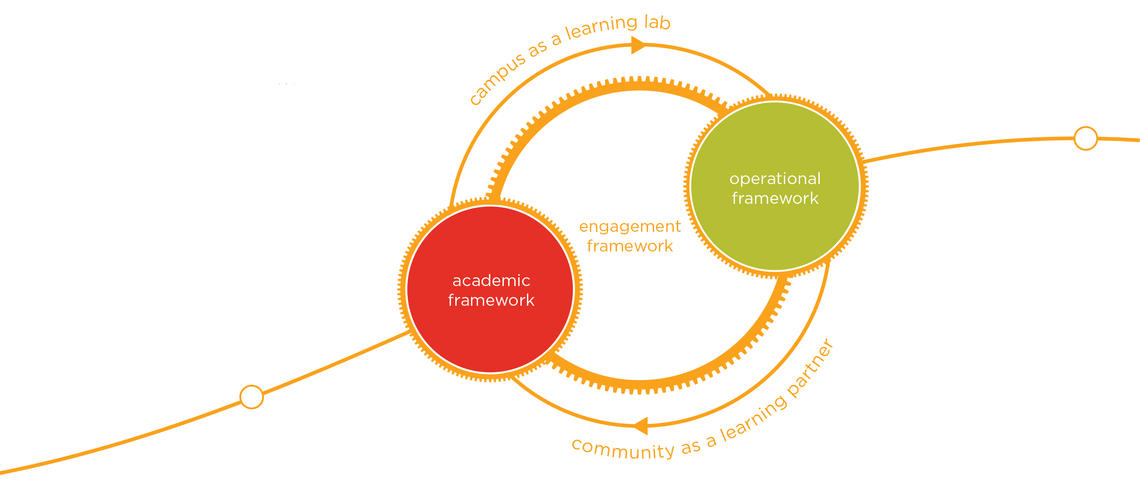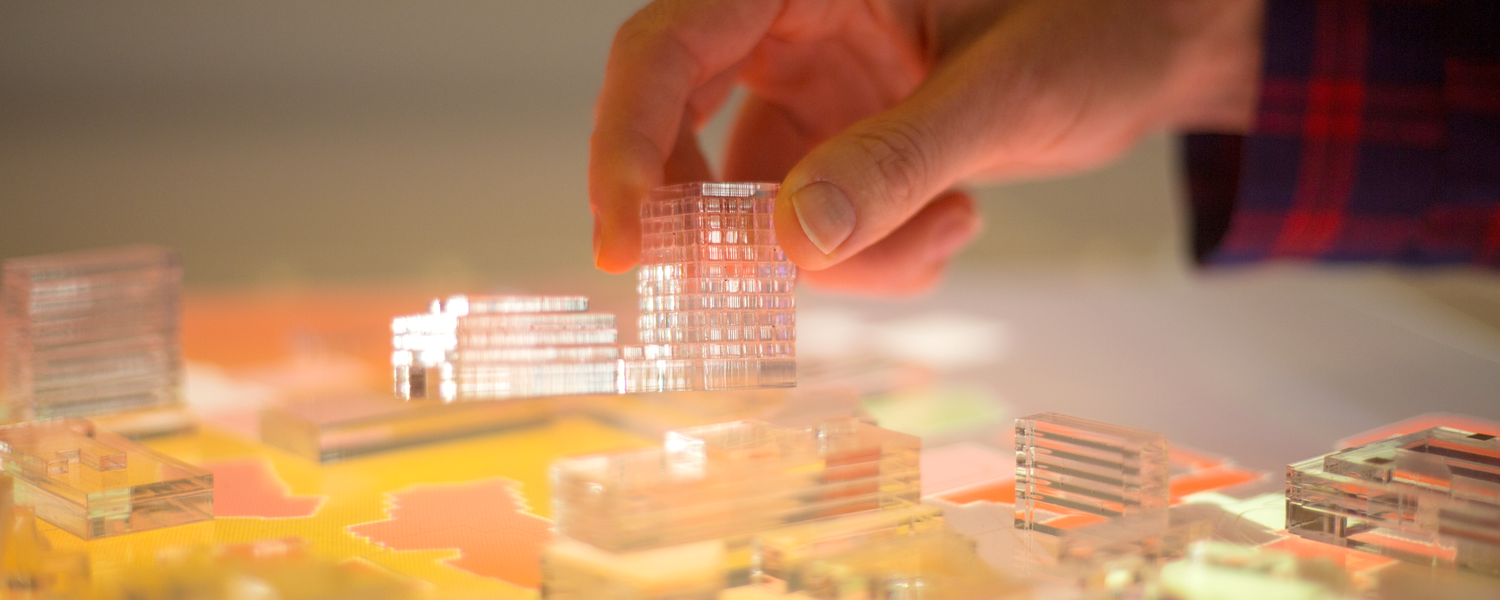Campus as a Learning Lab
What is Campus as a Learning Lab?
Campus as a Learning Lab (CLL) is an innovative University of Calgary initiative with a focus on experiential learning and fostering a campus culture rooted in sustainability. Learning labs enable campuses to be active environments for teaching and learning, while enabling the co-production of knowledge and increasing the ability of an institution to contribute to sustainability challenges. Through CLL, the University of Calgary is using its campus as a lab to test and model innovative sustainability practices, leveraging its research, academic and operations functions.

Together, students, faculty and staff contribute to interdisciplinary sustainability solutions that can make a difference both on and off campus.
Co-Curricular Experiential Learning
Students can engage in their own sustainability projects on campus that are not for course credit, typically through student clubs and volunteer programs. One example of a co-curricular CLL project is the Campus Community Closet. This student-led initiative implemented a textile recycling program on campus in order to divert items such as clothing, backpacks, and other fabrics from the landfill. The Office of Sustainability manages and monitors co-curricular CLL projects through its Peer Helper program. Co-curricular projects are of value as they provide an opportunity for students to pursue a research idea outside of a formal classroom setting with a diverse group of students and stakeholders. Co-curricular programs can also serve as pathways to a more formal pursuit of sustainability studies. To learn more about the Peer Helper program, click here.
Curriculum-Integrated Experiential Learning
Students can engage in CLL projects through their coursework. Instructors can structure course projects to be focused on campus sustainability or students may choose to explore sustainability on campus for open-ended assignments. One example of a class CLL project is the life cycle assessment comparisons of campus sustainability questions completed by students in the ENEE503 course. In this course engineering students work in groups to undertake a variety of life cycle assessment projects put forward by staff stakeholders. Examples of past projects include comparing grid-sourced electricity to photo-voltaic energy panels on campus, and comparing biodegradable and stainless steel cutlery for University of Calgary Food and Conference Services. Instructors manage, monitor and evaluate these CLL class projects, with support from the Office of Sustainability.
Research-based Experiential Learning
Undergraduate
Undergraduate students have opportunities to engage in CLL projects through a directed studies, thesis work or research opportunities with a faculty supervisor (PURE, CUREs). Faculty supervisors manage and monitor research projects, with support from the Office of Sustainability. A staff stakeholder in the Office of Sustainability and/or Facilities Management and Development may support capstone projects with a focus on campus sustainability.
Graduate & Faculty
Graduate students can engage in CLL through graduate-level course projects or their thesis research. Faculty members can engage in CLL through pursuing research questions focused on advancing campus sustainability.
Community-Engaged Learning (CEL)
Activities designed in partnership with community organizations to address a community-identified need. Includes co-curricular CEL, community-engaged research, curricular CEL projects/placements, knowledge-keeper guided learning and land-based education.

